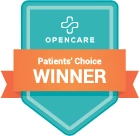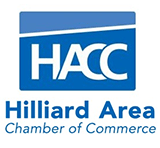A dental emergency can be a scary experience. It’s important to know what to do when one occurs, whether it’s a toothache that just won’t go away or a broken tooth that needs immediate attention. Understanding what constitutes a dental emergency can help you take the right steps to address the issue. In this blog post, we will dive deeper into what is considered a dental emergency, the different types of emergencies that can occur, and how to prevent them from happening in the first place. We will also discuss when you should seek professional help for tooth pain and what measures you can take at home to manage dental pain.
Understanding Dental Emergencies
Prompt attention is crucial in dental emergencies to prevent further damage to your oral health. Quick action not only alleviates pain but also prevents complications. It is important to know how to identify and handle dental emergencies effectively. By understanding different types of dental emergencies, you can better manage them. Remember, dental emergencies require immediate attention to safeguard your oral health. Seek help from our office, an urgent care center, or even a hospital emergency room, depending on the severity.
Definition and Importance of Prompt Response
Prompt response to dental emergencies is vital as it can save teeth and prevent infections. These emergencies are situations that require immediate dental care. Ignoring them can lead to further complications. Taking quick action minimizes pain and discomfort. Seeking dental care is essential for preserving oral health. By responding promptly to dental emergencies, such as a toothache or a chipped tooth, you can prevent the situation from worsening and ensure proper treatment and care.
Types of Dental Emergencies
Toothache and swelling are common dental emergencies that require immediate attention. Quickly addressing chipped or broken teeth is essential to preventing further damage. Following the proper procedures for a knocked-out tooth is crucial for potential salvage. Lost fillings or crowns should be replaced immediately to protect the affected tooth. Similarly, broken orthodontic appliances must be repaired to maintain proper tooth alignment. Recognizing and addressing these types of dental emergencies can help in effective management and prevent complications.
Toothache and its Implications
A toothache can be indicative of underlying dental problems and should not be ignored. They may signal tooth decay or gum disease, both of which require evaluation by Dr. Sanyk and our skilled team at Smile Hilliard. While over-the-counter pain relievers can provide temporary relief, it is important to seek dental care to prevent potential complications. Warm water rinses can help alleviate discomfort, but they do not address the root cause. Seek immediate treatment from us to effectively manage toothaches.
Dealing with Chipped or Broken Teeth
When dealing with chipped or broken teeth, it is important to seek evaluation from Dr. Sanyk for appropriate treatment. Rinse the mouth with warm water to clean the area around the affected tooth, and cover any sharp edges with dental wax to prevent irritation to the soft tissues. Applying a cold compress can help reduce swelling, and it is advised to avoid chewing on the affected side. Seeking immediate dental care is crucial in such cases.
Replacing Lost Fillings or Crowns
Replacing lost fillings or crowns is important to prevent sensitivity and decay in the affected tooth. After a filling or crown is lost, rinse the area with warm water to keep it clean. Apply dental wax over the exposed area for protection. Avoid chewing on the side with the lost filling or crown and seek prompt dental care. Regular dental check-ups can help prevent the occurrence of lost fillings or crowns.
Recognizing and Treating Abscess
Abscesses, or dental infections that necessitate urgent dental care, may result in severe pain, swelling, and the formation of pus. To alleviate discomfort, warm salt water rinses can be used. Dr. Sanyk may prescribe antibiotics to treat the infection associated with an abscess. Seeking immediate dental care is crucial as it allows for proper drainage of the abscess and prevents complications. Remember, when faced with symptoms like severe pain, swelling, or pus formation, it’s essential to seek emergency dental services promptly. If any swelling makes it difficult to swallow or breathe, go to the emergency room immediately.
Managing Bleeding and Pain after Tooth Extraction
To manage bleeding after tooth extraction, apply gentle pressure with a gauze pad. Bite down on it for an hour to promote clot formation. Avoid vigorous rinsing or spitting to prevent dislodging the blood clot. For pain, over-the-counter pain relievers can help. Follow the post-extraction instructions provided by the dentist for proper healing. Remember, managing bleeding and pain after tooth extraction is important for a smooth recovery.
When Should You Seek Professional Help for Tooth Pain?
Persistent toothaches that aren’t relieved by over-the-counter meds may require professional evaluation. Swelling or bleeding around the gums could indicate an underlying issue and should be addressed promptly. Severe pain or discomfort affecting your daily activities warrants dental care. Dental emergencies like knocked-out teeth or trauma need immediate attention. Trust your instincts and contact us if you feel it’s necessary.
Contact Smile Hilliard For Your Dental Emergency
Dental emergencies can happen at any time, and it’s important to be prepared. A timely response and seeking professional help are crucial in such situations. Understanding the different types of dental emergencies and knowing how to handle them can make a significant difference in preserving your oral health. Remember, if you experience tooth pain or any other concerning symptoms, don’t hesitate to contact Smile Hilliard for help. Lastly, having some basic supplies and knowledge at home can help manage dental pain temporarily until you can make an appointment. Take care of your oral health and be prepared for any dental emergency that may arise. Contact us today at Smile Hillard for more information!






